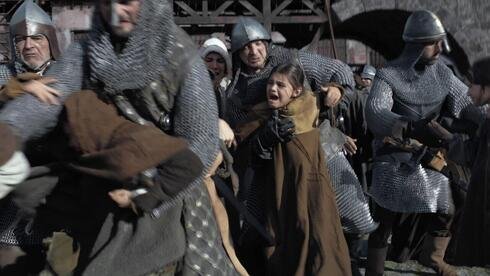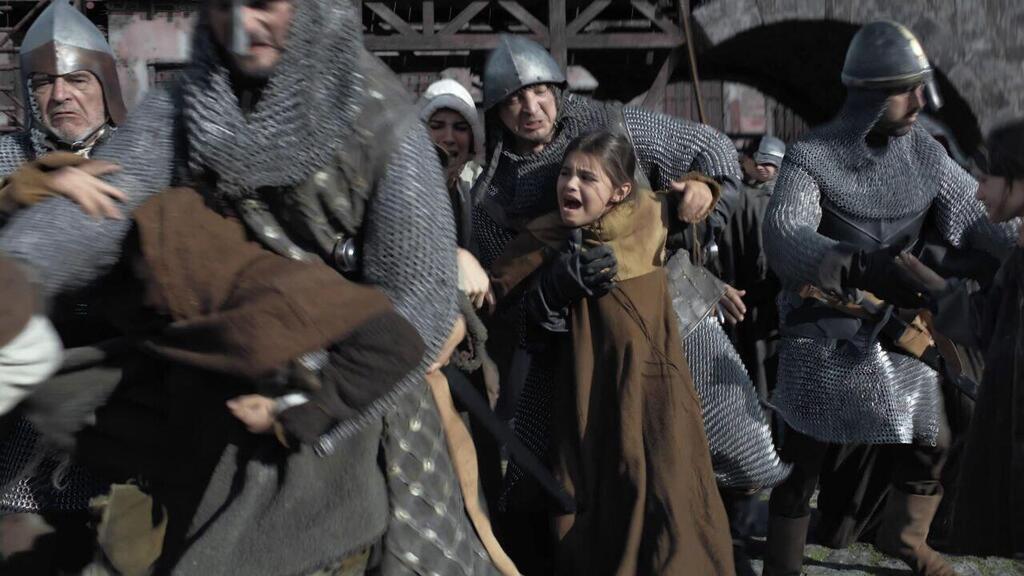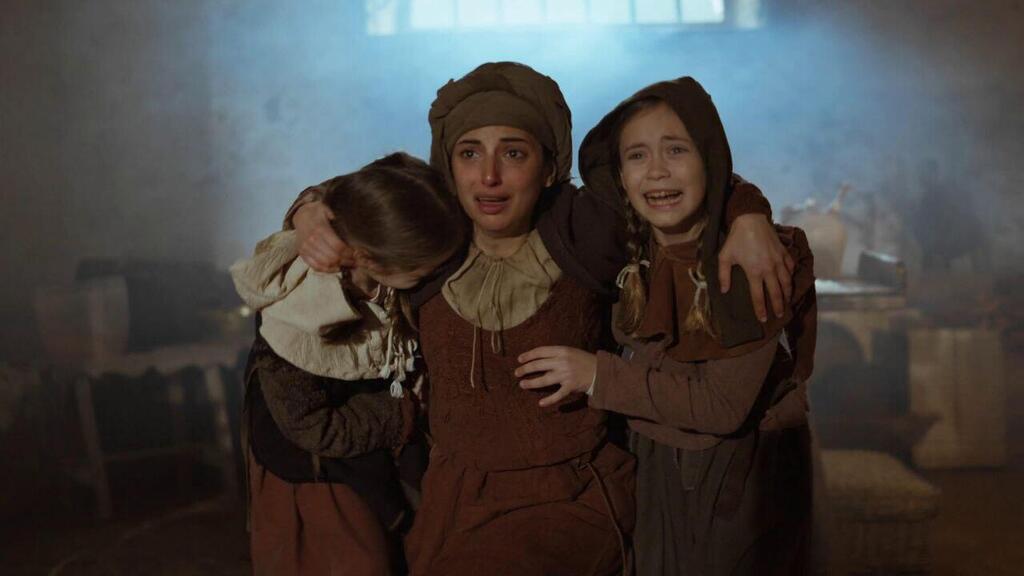A new documentary chronicling the forced deportation of 2,000 Jewish children from Portugal in the 15th century premiered this week to an emotional audience in Porto, drawing parallels between the historical tragedy and modern-day antisemitism.
Titled 2,000 Kidnapped Jewish Children, the film was screened for about 200 people at the historic Trindade Cinema. Produced by the Jewish community of Porto and the Madrid-based Sephardic Jewish Foundation, the documentary recounts the 1493 abduction and exile of Jewish children—aged eight and under—whose parents could not pay a ransom demanded by King João II.
The children were sent to the island of São Tomé, then a remote and uninhabited volcanic outpost in the Atlantic Ocean. Referred to by Jews as the “Island of Crocodiles,” São Tomé exposed the children to toxic gases, wild animals and total isolation from their families and heritage.
“This was a silent death sentence,” said Gabriel Senderowicz, president of the Porto Jewish community. “When today’s European leaders award terrorists and promote hateful rhetoric against Jews and Israelis, we must remember what the Jewish people endured in Europe for generations.”
The film, now available on YouTube, features historical accounts from Portuguese chroniclers and Jewish thinkers including Isaac Abarbanel, Samuel Usque and Solomon ibn Verga. According to the filmmakers, the story remains absent from school curricula across Europe.
Luís Ismael, who directed the film, said the production involved building replicas of 15th-century ships, casting hundreds of children, and filming on São Tomé. Local white children were hired to portray the deported Jewish minors.
“This was the hardest production of my career,” Ismael said during a post-screening panel. “As a father, imagining the agony of those parents—wondering if their children lived, died, suffered, or survived—was unbearable. This became a personal wound in our collective story.”
The film draws a connection between the historical deportations and the October 7, 2023, Hamas attack on Israel, during which children were among those kidnapped.
“The pain of losing children is part of Jewish historical memory,” said David Hatchwell Altaras, president of the Sephardic Jewish Foundation. “Just as those parents were broken centuries ago, today’s hostage families continue to live a never-ending nightmare.”
Israel’s Deputy Ambassador to Portugal, Yotam Kreiman, also participated in the post-screening discussion, warning that antisemitic hate speech and protests in Europe are modern echoes of past persecution.
“Jewish children were once thrown to the beasts,” Kreiman said. “There is a direct line from 1493 to 2023.”
The film’s young star, Rodrigo Costa, who played a central character named Yaakov, addressed the audience spontaneously. “The most powerful scene for me was being trapped in a wagon, screaming for my mother,” he said. “But the hardest part is knowing this really happened. It’s not fiction.”
Following the premiere in Porto, additional screenings are planned in Jerusalem, Madrid, Miami, London, Brussels, Lisbon and Buenos Aires. The Israeli ambassador is expected to attend the Lisbon event.
Organizers say the film aims to confront European audiences—and especially political leaders—with the historical legacy of violence against Jews.
“When a Portuguese newspaper blames ‘Israeli capital’ for housing prices or demonstrators accuse ‘Zionists’ of economic woes,” Senderowicz said, “it’s time to remember the fate of those children. History repeats itself—when it’s forgotten.”



